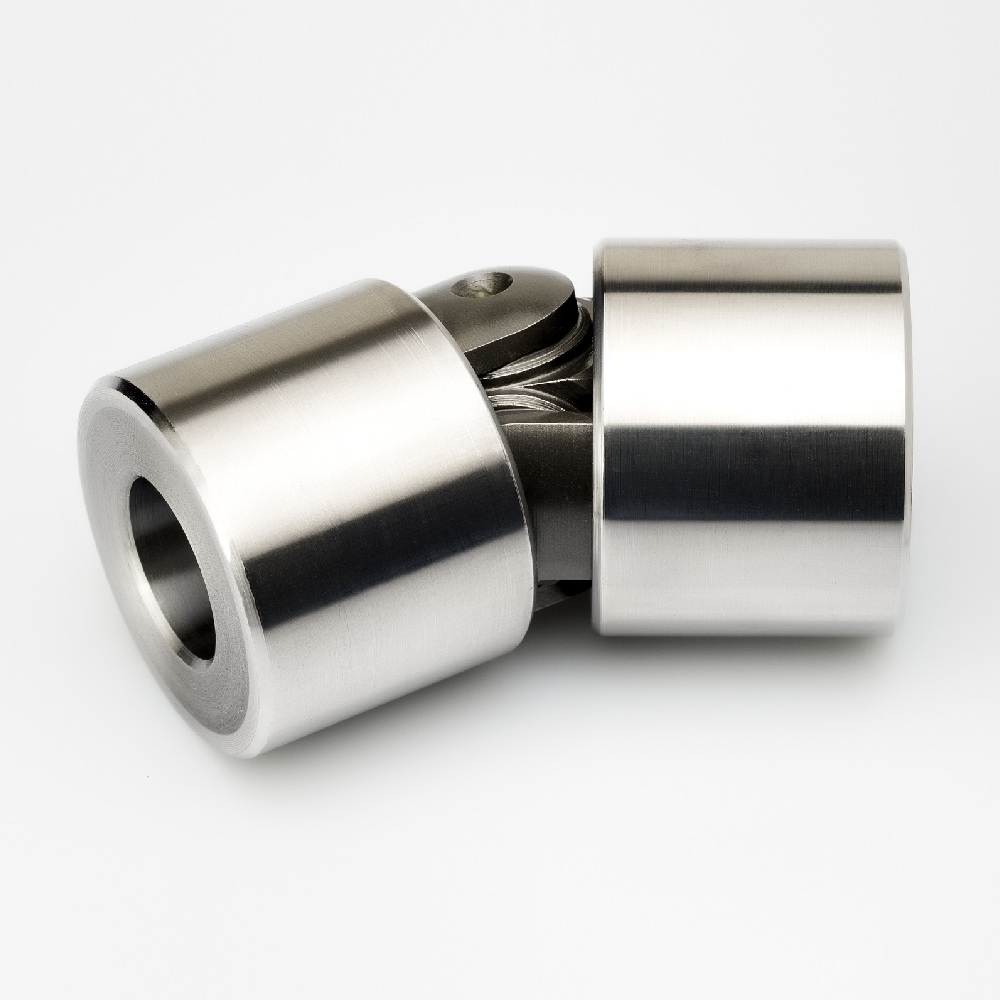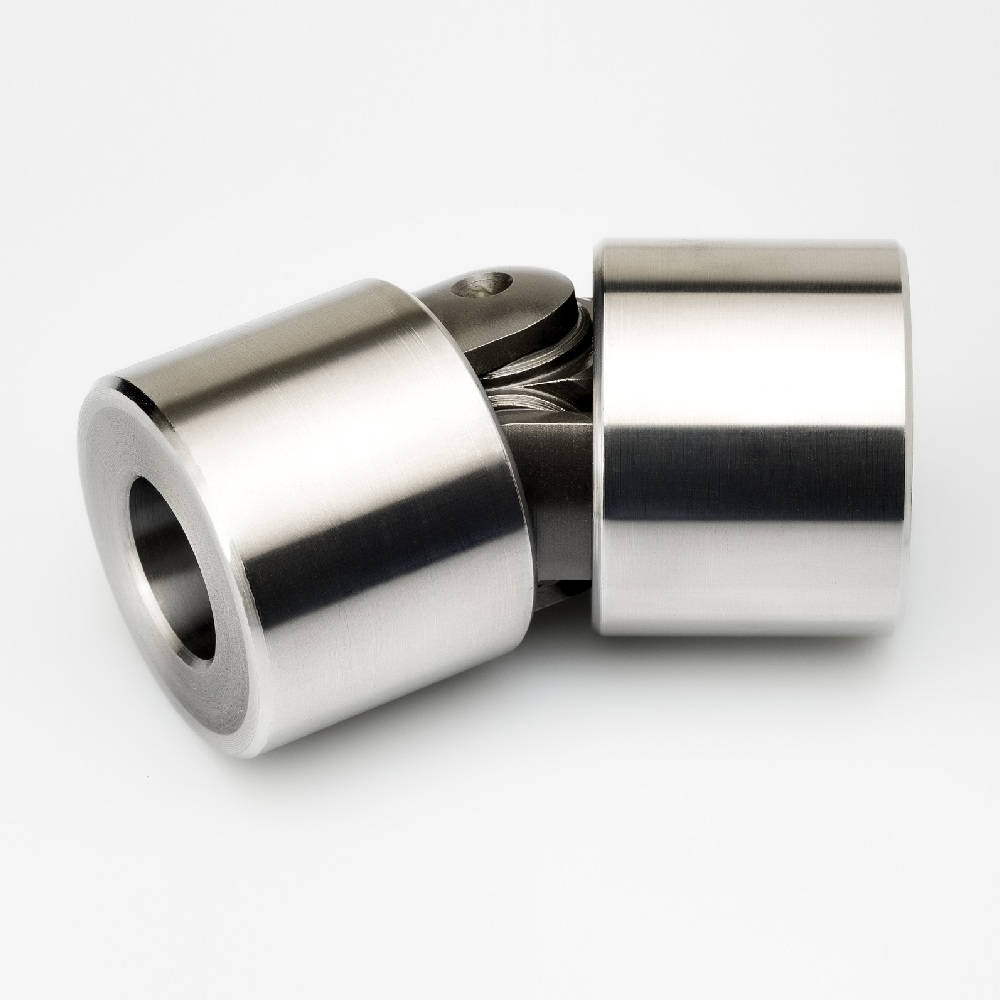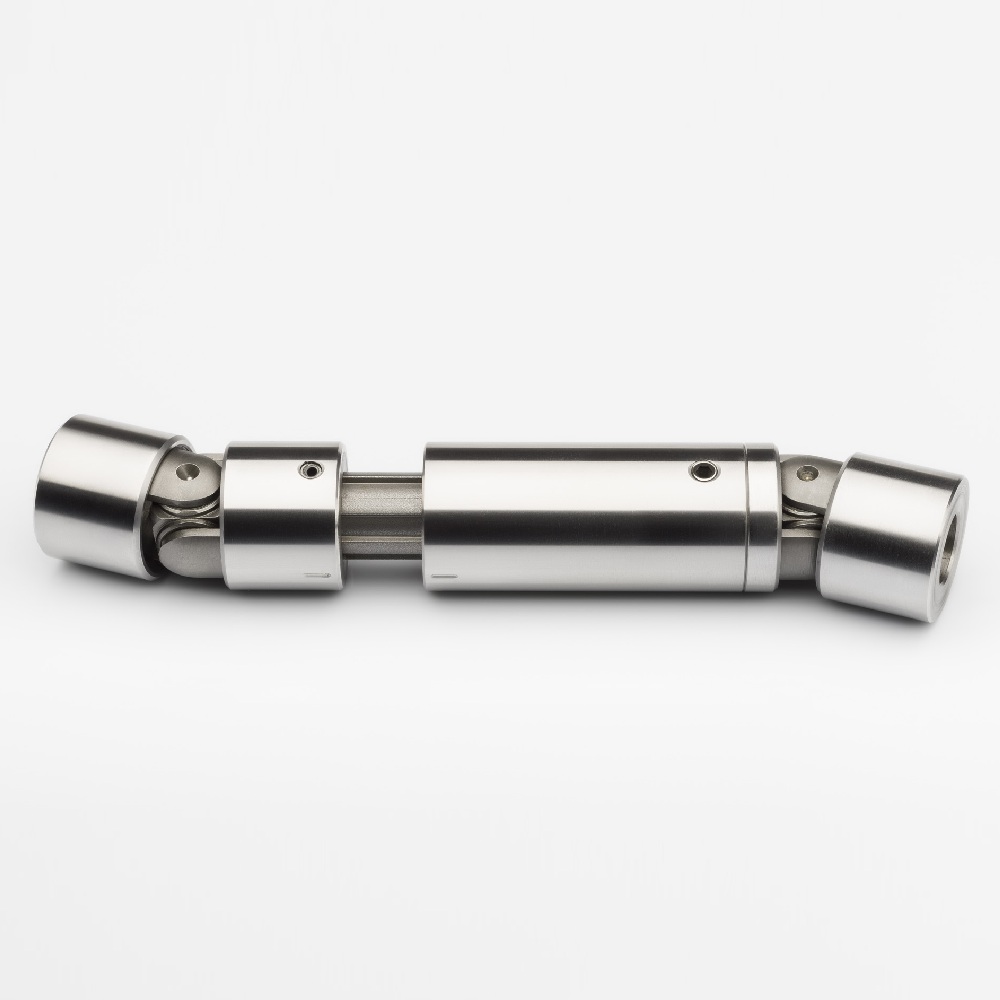Joints S Series


UNIVERSAL JOINTS WITH INTEGRAL FORKS «S» SERIES
- Central block and forks from one piece of Nickel Chrome steel cemented and hardened (R >= 200 Kgf/mm2 - HRC 60)
- High wear resistance, long life
- Pre-lubricated, greaser built-in
- Maximum working angle 45°
- Maximum rotation speed 1000 rpm
- Special executions on request
Integral yokes joints S series are precision products studied to ensure exceptionally long life at competitive prices.
This extraordinary result has been achieved thanks to construction high tecnology devices and sophisticated machine tools.
They are made of several components and of different materials:
Special nickel chrome alloy steel cemented and hardened tor those parts which are subject to high stress and wear (R > 200 Kgf/mm2 - HRC 60). Mild steel for inner hubs and outer sleeves to allow pinning, keyways, etc.
The main characteristic of these joints is the absolute lack of carried journals or pins, this is fundamental in some emergency situations such as heavy shock loads, motion reversals and high torques.
Being the 4 yokes and their solid pins machined from one piece, the result is an extremely compact central block. The pins articulate in the centrai block together with the cemented bearing surface of the yokes. The combined action pinlsurface raises the level of the joint output and its capability to transmit power (or torque) even in the most severe conditions.
Yokes are exposed tor a minimum part (out of sleeves) to avoid bendings.
In the central block cavity there are channels bringing the lubricant from the outside grease valve to the pins. A constant lubrication is ensured by the grease reserve in the central block chamber. Such a hermetic core structure prevents both from lubricant losses and pollution by outside agents.
WHAT'S CEMENTATION?
National and international standards often disregard quality aspects, just dealing with size interchangeability subjects.
Besides respecting those standards, «MF» universal joints have high quality construction characteristics, outcome of decades of experience.
Not every universal joint on the market has the same output when subject to load. A substantial difference is represented by the metallurgical and mechanical properties of the materials, that is steel quality and heating treatments executed on the different components.
While other manufacturers use steel for only hardening, «MF» joints are exclusively made from cement alloy steel.
Cementation consists of a superficial carbon enrichment to a high resilience steel to give the surface the utmost grade of hardness. The steel is heated in a particular environment (controlled atmosphere) able to transmit carbon to it: over a certain temperature nascent state carbon develops expanding into the superficial layers of the steel.
By a following hardening, we obtain a superficial layer of great hardness (HRC > 60) and a core able to support bending and shock stresses without deformations or breakings.
By a cemented steel we get a 50% improvement of the fatigue strength.



